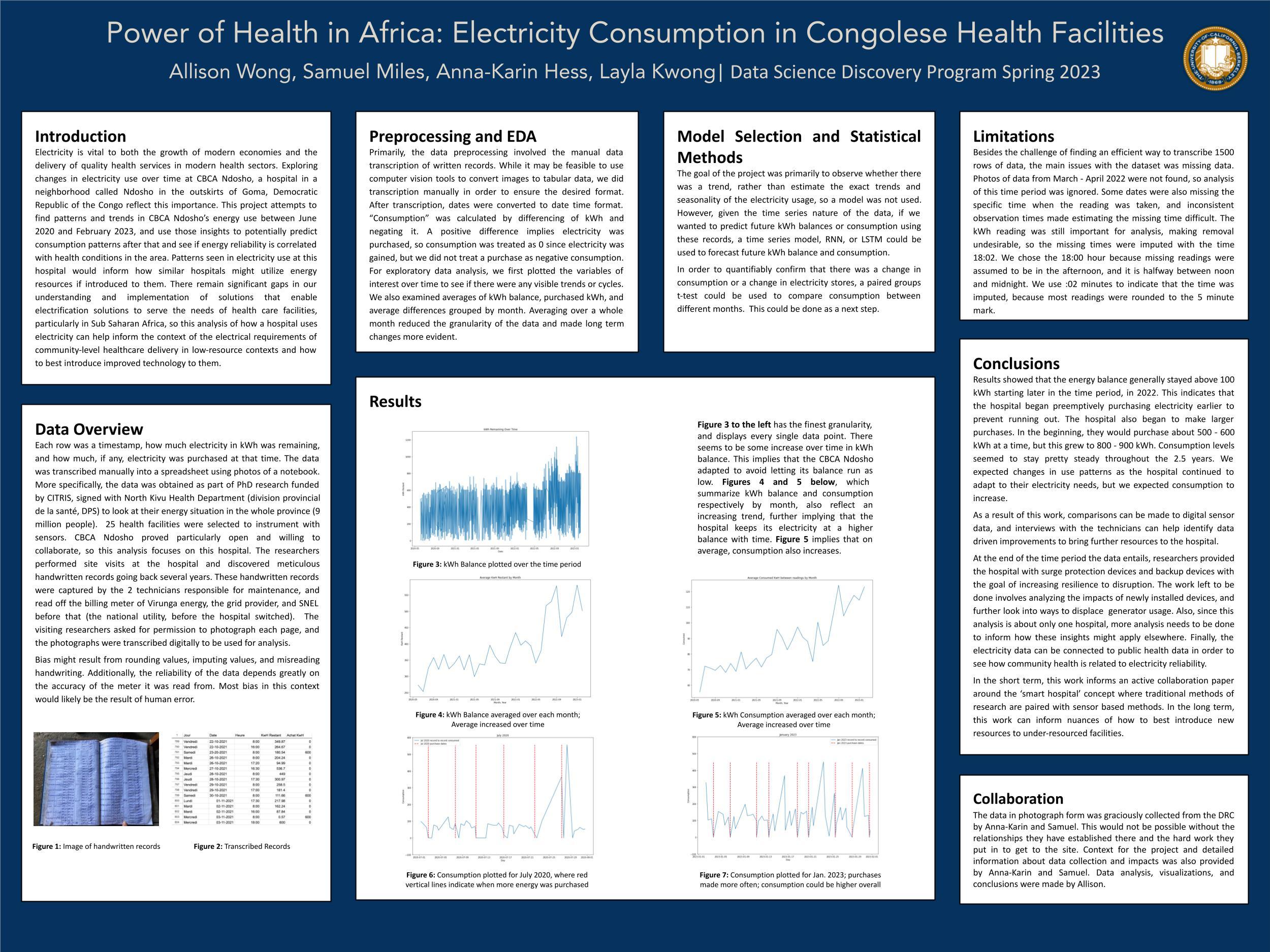RAEL focuses on designing, testing, and disseminating renewable and appropriate energy systems.
This project involves installing internet-of-things sensors in health facilities (HF) across vulnerable provinces of the DRC to establish a data-rich baseline for how health providers deliver services to patients under no-electric grid and grid-constrained conditions. Beginning in May 2022, we installed sensors that monitor power quality in real-time at 25 hospitals and health centers across North Kivu, an eastern province of the DRC.
We aim to determine the impact of power unreliability on mortality due to different equipment failures. We will test the hypothesis that distinct power problems (e.g. sustained undervoltage, brief voltage spikes, AC frequency drifts, outage events, etc.) have distinct negative impacts on biomedical device performance. Our approach will be to correlate live power monitoring data, biomedical device performance, and facility-level mortality rates and causes. We will explore potential climate impacts by assessing if temperature and rainfall are correlated with worse power quality and higher equipment failure rates.
Power challenges are the single most common cause of medical equipment failure in low- and middle-income countries (LMICs), where up to 70% of devices are broken or remain unused — Yet the field lacks the empirical, longitudinal data on power quality and reliability in health facilities in LMICs needed to understand what, specifically, about bad quality power causes medical equipment to fail. This inhibits our ability to effectively design corrective interventions in the design and deployment of (a) medical equipment to health facilities (HFs) and (b) the energy systems that power them.

